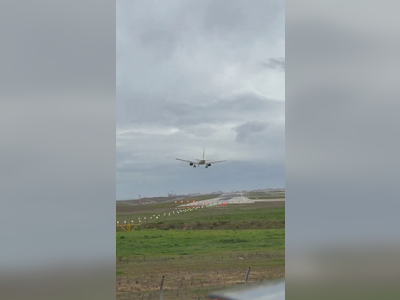SNCF Union Sud Rail Files Six-Week Strike Notice Over Working Conditions
The Sud Rail union warns of deteriorating conditions for train controllers as it issues a strike notice from April 17 to June 2.
Sud Rail, the third-largest union at SNCF and the second among train controllers, has announced a six-week strike notice beginning April 17 and lasting until June 2. The union cites deteriorating working conditions for train controllers as the primary reason for this action, as detailed in a recent press release.
The implementation of a new software system has led to continual changes in the scheduling of controllers without prior notice, according to the union's statement.
This notice serves as a warning to SNCF management rather than a formal strike call.
The union's internal bodies will deliberate on whether to escalate to an actual strike in the near future.
In its communication, Sud Rail expressed disappointment in the lack of progress made with SNCF management regarding demands for an increase in a work-related bonus, attributed to the intensified conditions faced in the role of train controllers.
In response, SNCF Voyageurs management acknowledged the preemptive nature of the notice and emphasized their commitment to dialogue, stating that they are closely monitoring all strike notices.
Catherine Vautrin, the Minister of Labour, Health, and Solidarity, emphasized the need for responsibility from all parties involved.
In a recent interview, she indicated the importance of allowing citizens to maintain their daily lives and expressed concerns about the potential negative perception of a rail strike during the spring period.
At this time, no unions have called for strikes coinciding with the school holidays and spring holiday weekends, as acknowledged by SNCF management.
Additionally, recent strike notices from various unions have not significantly impacted operations.
The last strike involving controllers occurred during a holiday weekend in February 2024, resulting in the cancellation of numerous TGV trains and leaving approximately 150,000 passengers affected.
The implementation of a new software system has led to continual changes in the scheduling of controllers without prior notice, according to the union's statement.
This notice serves as a warning to SNCF management rather than a formal strike call.
The union's internal bodies will deliberate on whether to escalate to an actual strike in the near future.
In its communication, Sud Rail expressed disappointment in the lack of progress made with SNCF management regarding demands for an increase in a work-related bonus, attributed to the intensified conditions faced in the role of train controllers.
In response, SNCF Voyageurs management acknowledged the preemptive nature of the notice and emphasized their commitment to dialogue, stating that they are closely monitoring all strike notices.
Catherine Vautrin, the Minister of Labour, Health, and Solidarity, emphasized the need for responsibility from all parties involved.
In a recent interview, she indicated the importance of allowing citizens to maintain their daily lives and expressed concerns about the potential negative perception of a rail strike during the spring period.
At this time, no unions have called for strikes coinciding with the school holidays and spring holiday weekends, as acknowledged by SNCF management.
Additionally, recent strike notices from various unions have not significantly impacted operations.
The last strike involving controllers occurred during a holiday weekend in February 2024, resulting in the cancellation of numerous TGV trains and leaving approximately 150,000 passengers affected.











